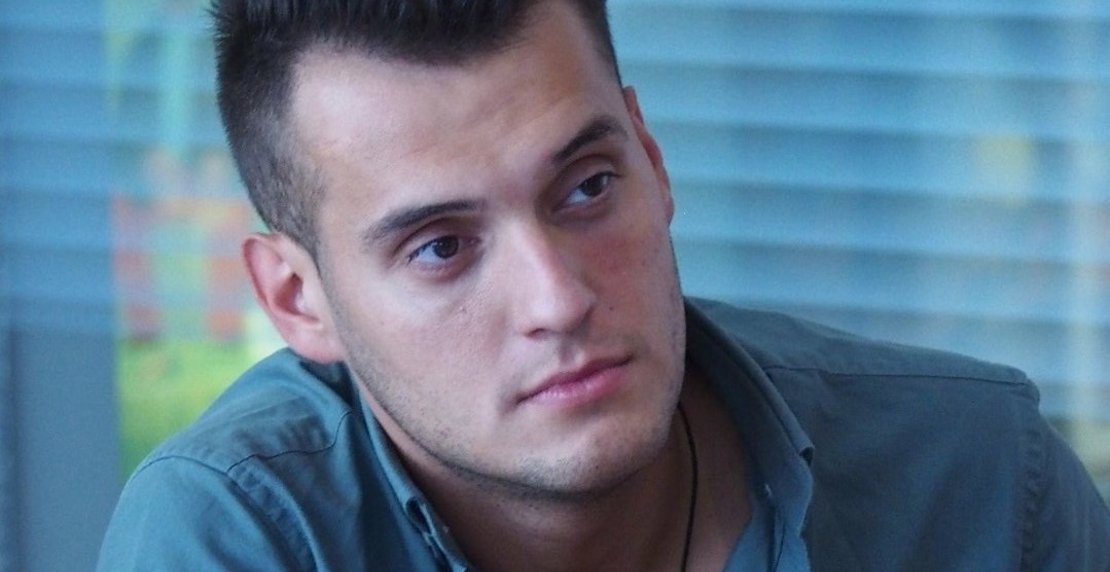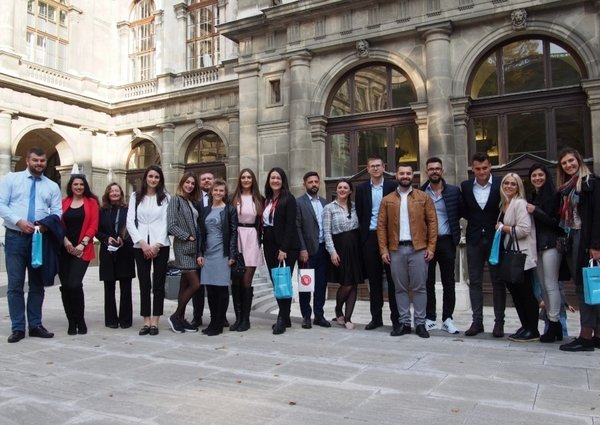
Adnan Hodzic from Bosnia and Herzegovina
Adnan Hodžić, from Bosnia and Herzegovina, lives in the city of Livno. He is currently finishing his PhD studies at the University of Sarajevo. He is a member of the Party of democratic action Youth association on a regional and national level.
What does democracy mean to you?
To me, democracy is a gift. It is about people living and working together with respect. It means having a voice and using it properly. It is a privilege to know each other, learn from each other and listen to each other without fear.
How is democracy in your country?
Let me put it like this, more than 20 years have passed since the Dayton agreement. Bosnia and Herzegovina have reached certain turning points when it comes to democracy. We have a lot of visible progress, but we are still facing certain challenges today, due to various foreign and domestic impacts that go hand in hand with conflicting interests and also obstructive decision makings by certain groups in Bosnia which in the end result in divided goals, disjointed decisions and lead to the fragmentation of our society. This all holds us back from our own development and a brighter future. The complexity of the administrative system is also one of the reasons for these divisions.
What developments do you see that are shaping democracy, in a positive or negative way, in your country?
Despite the complexity of the administrative and political system of Bosnia and Herzegovina, certain progress is visible towards improving the state of democracy in Bosnia and Herzegovina. In the last 20 years after the war, Bosnia has applied for EU candidacy status and NATO alliance entry and the Party of democratic action, to which I belong has led these processes for the last 20 years and has carried out most of the work along the way. In that way, with the help of the International Community, we have implemented many quality legislative and strategic frameworks in our system. We still have certain issues when it comes to the constitution and rights of the citizens of Bosnia and Herzegovina, the implementation of the International court verdicts. To resolve all these things, we have more work to do and we need constructive support from both outside and inside the country.
What do you like about politics and what motivates you to work in politics?
I think dealing with politics in a democratic system is a chivalrous (knight) discipline. To present a quality idea that is supported by people is something noble. Indeed there are a lot of cases in the world of using people's trust in the wrong way, but I believe that there are a lot of politicians who have the same approach as I do and they are in benefit to the nation. They say „yours is only what you give“. That is my motivation.
Of which political achievement are you most proud? And what do you hope to achieve
I am proud of being a member of the national youth association presidency of the biggest party in Bosnia and Herzegovina, the Party of democratic action. Personally, the thing I am most proud of is being active together with my colleagues from my political party and different organizations on a local and regional level in creating and putting into realization many projects and activities in political, cultural, humanitarian, youth policy and educational areas. For example, we have made a 4 years volunteer program making free schools of science and free schools of musical instruments for children in my city.
In future, I hope to be a small part of the wheel that will bring this country to where it has been for centuries and where it deserves to be, and that is in the family of European countries.
What kind of support would you, or other young people active in your country, need more?
There are a lot of young people in my country who have ideas, braveness to present them and to lead this country. I believe that political education provided by NGOs like EFF is extremely useful and needed, but it is only the first step. To be able to use this knowledge for the greater good, youth in my country need access to those platforms where this greater good is being decided. For example to organize regular roundtable sessions for youth from Southeastern Europe countries with decision-makers in the EU. We need equality to have our voices heard, we need to be involved in shaping our common future. The future of our continent.

What is the added value of the training from organizations like the EFF to the political development of the youth in your country?
I participated in the YOUNG LEADERS XXVII-6 program in 2020/2021. EFF gave us the opportunity to connect to experts and high-level professionals from different countries in Europe who introduced us to their diverse views and practices of both long-term and short-term problem-solving. I do believe that the integrity of our differences – different views of different cultures – and uniting the best of our diversity is the best way to develop. EFF connected us to professionals and to each other, making it possible to collect valuable knowledge, spread connections, and establish new cooperations, which will surely be beneficial for all of us.
What do you hope to see change in your country?
I hope to see a higher level of mutual respect and acceptance among all the citizens. I hope for willingness and joint effort made for the development of the whole country and I hope to fulfill our mutually determining strategic goals – that we will be a member of the European Union and NATO.
